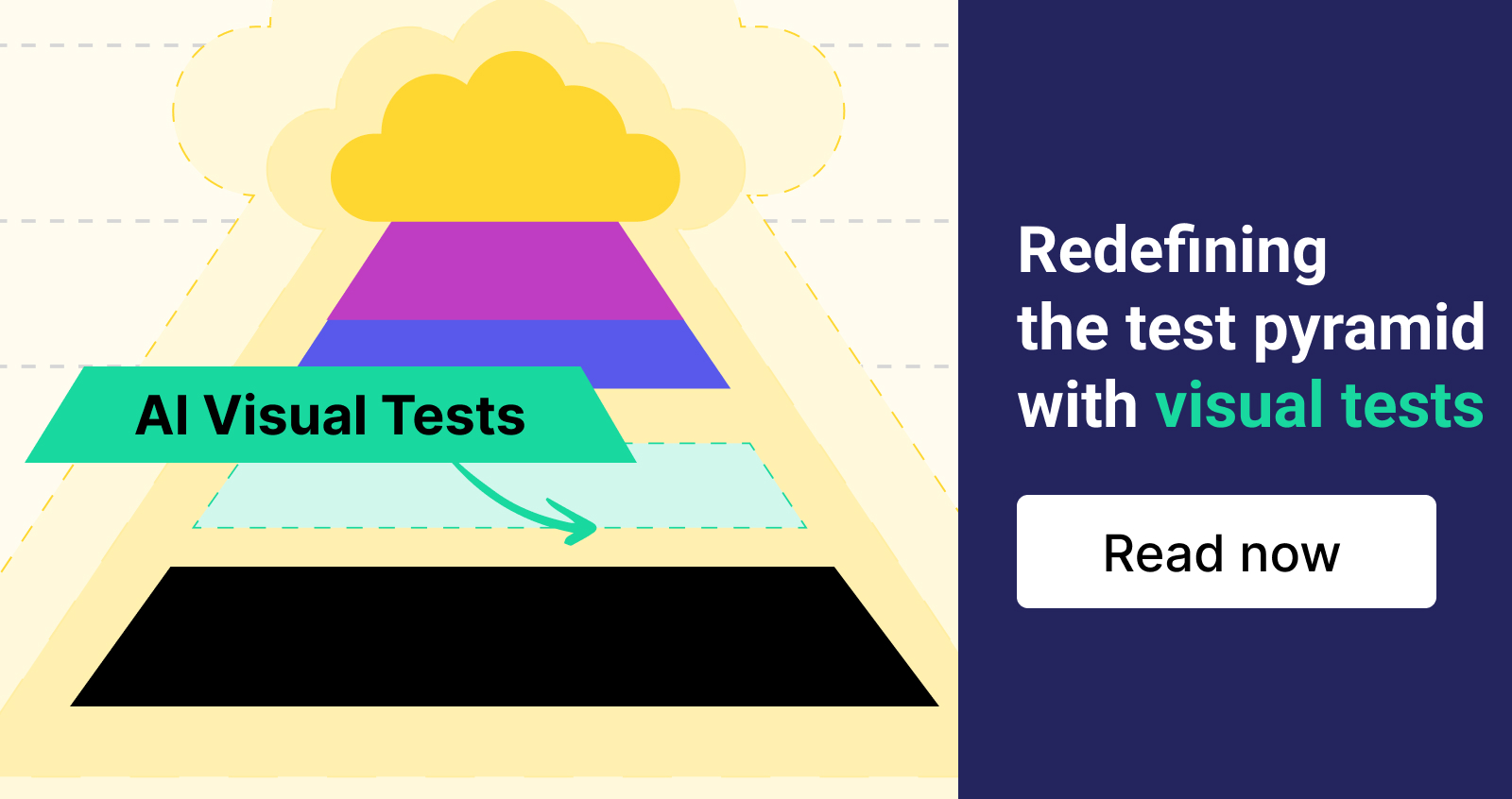Appium vs Selenium — Architecture, Functionality, Applications, and Everything in Between
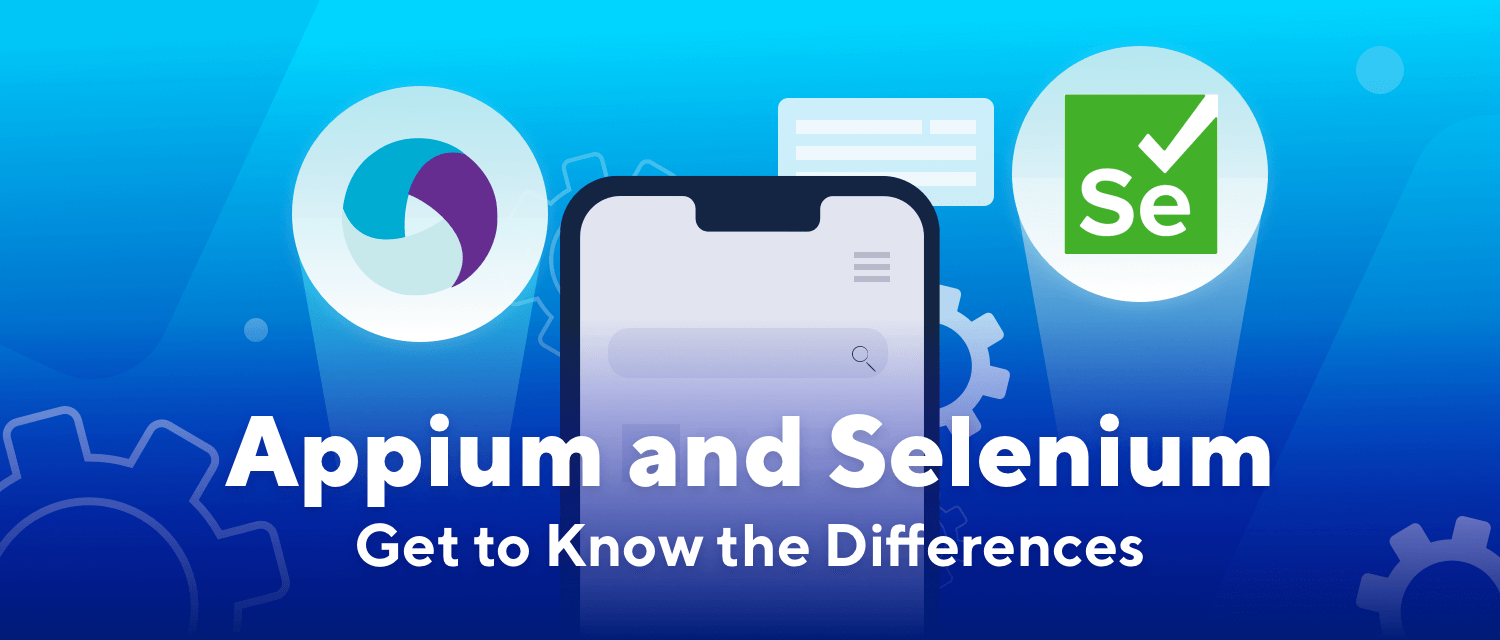
It’s perhaps difficult to remember life before smartphones. Today, mobile phones have transformed dramatically to become the information and communication hub fundamental to modern life: from paying for your next meal to tracking your sleep habits. This explosion of the mobile industry puts testing professionals under pressure to keep up with speed without sacrificing their mobile apps’ quality.
When opting for the best-fit mobile testing solution, Selenium and Appium are the two most frequent recommendations. This article contains the comparison of both tools, along with their key features, to make the selection process easier for you and your team.
About Selenium
What is Selenium?
Selenium is an open-source framework used for web application validation. Established and run by the public community since 2004, Selenium has been recognized as the standard framework for all later automation testing platforms.
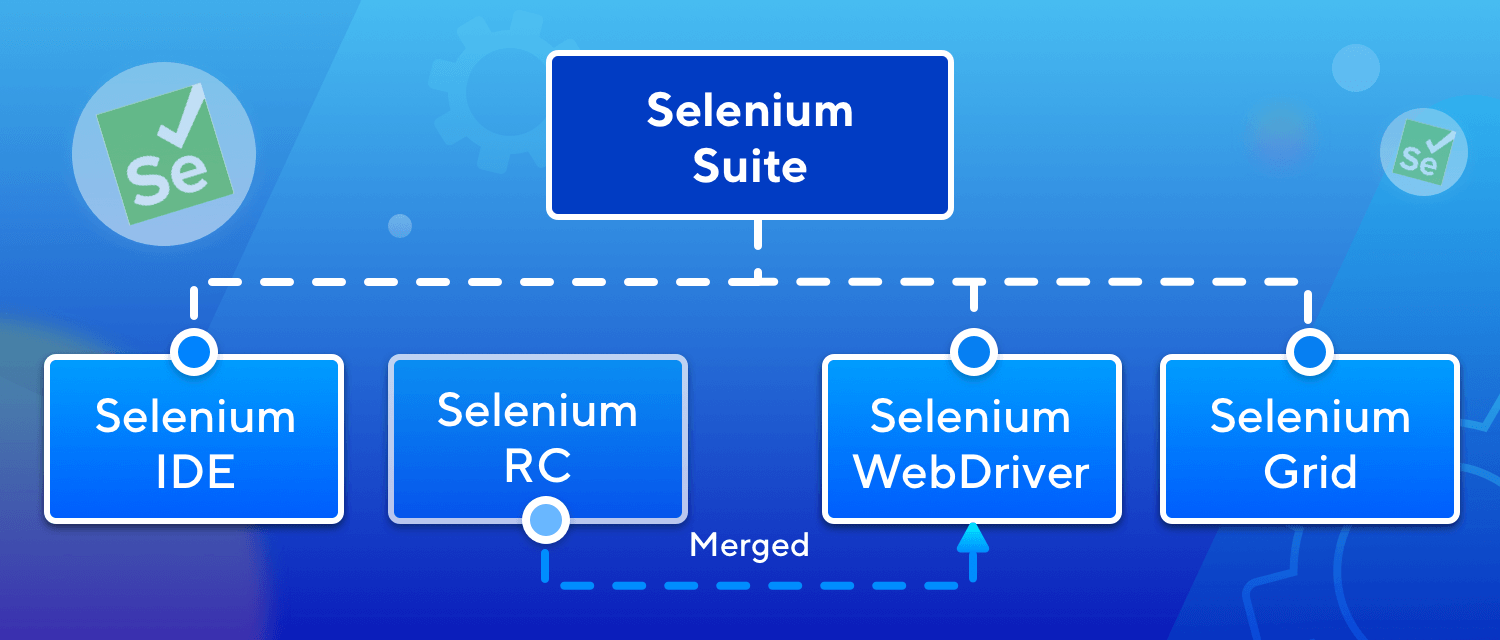
Selenium Components:
Selenium is a suite of tools, including three components: Selenium WebDriver, Selenium IDE, and Selenium Grid. The suite once had another component, which is Selenium Remote Control (Selenium RC). However, due to some significant limitations that were all resolved by the WebDriver, Selenium RC was officially removed from the Selenium 3.0. Providing a single interface, Selenium allows users to write test scripts in a wide range of programming languages: Ruby, Java, NodeJS, Perl, Python, C#, and more.
Selenium WebDriver
Developed as a collection of open-source APIs, Selenium WebDriver supports various browsers like Firefox, Safari, Chrome, and Internet Explorer. Unlike Selenium RC, its sibling in the Selenium family, WebDriver directly communicates with the browsers without relying on JavaScript.
There’s no need to wait for page elements to load since WebDriver can support the headless HtmlUnit browser without GUI, accelerating the test execution cycle.
Selenium IDE
Selenium IDE is a recording tool used to develop and edit Selenium test cases for web applications. Suitable for even novice programmers, it requires no particular setup step to get started with Selenium IDE, except for adding the extension of the tester’s specific browser.
The development environment offers the capability of converting test cases to different programming languages, giving testers greater flexibility in test execution.
Selenium Grid
Selenium Grid is designed to run multiple tests across different operating systems, browsers, and machines in parallel. It’s a significant relief for heavy test loads: enabling QA to manage large test suites faster and reduce the total time to complete a parallel-testing complete pass.
About Appium:
What is Appium?
Appium is an open-source tool with features to simplify mobile app automation testing. With powerful and cross-platform capabilities, the tool is widely used for all mobile apps: native, hybrid, and web applications. Before being funded and maintained by Sauce Labs in 2013, its original release was in 2011 by developer Dan Cuellar, written in C# programming language.

Appium allows writing automated scripts using multiple programming languages, such as Java, PHP, Perl, Python, etc. The widespread acceptance of Appium results from its robust capability of writing tests against various platforms (iOS, Android, Windows).
With its foundation written in Node.js, Appium works using client-server architecture, including:
- Appium Client: an automation scripted code that holds the configuration details of the mobile device and the application.
- Appium Server: it receives command requests from the Appium client in JSON format and executes it on mobile devices.
- End Device: mainly a real-time mobile device, or an emulator in which the automated scripts are performed, with the connection from Appium Server and commands from Client.
Appium and Selenium Frameworks for Automation Mobile Testing
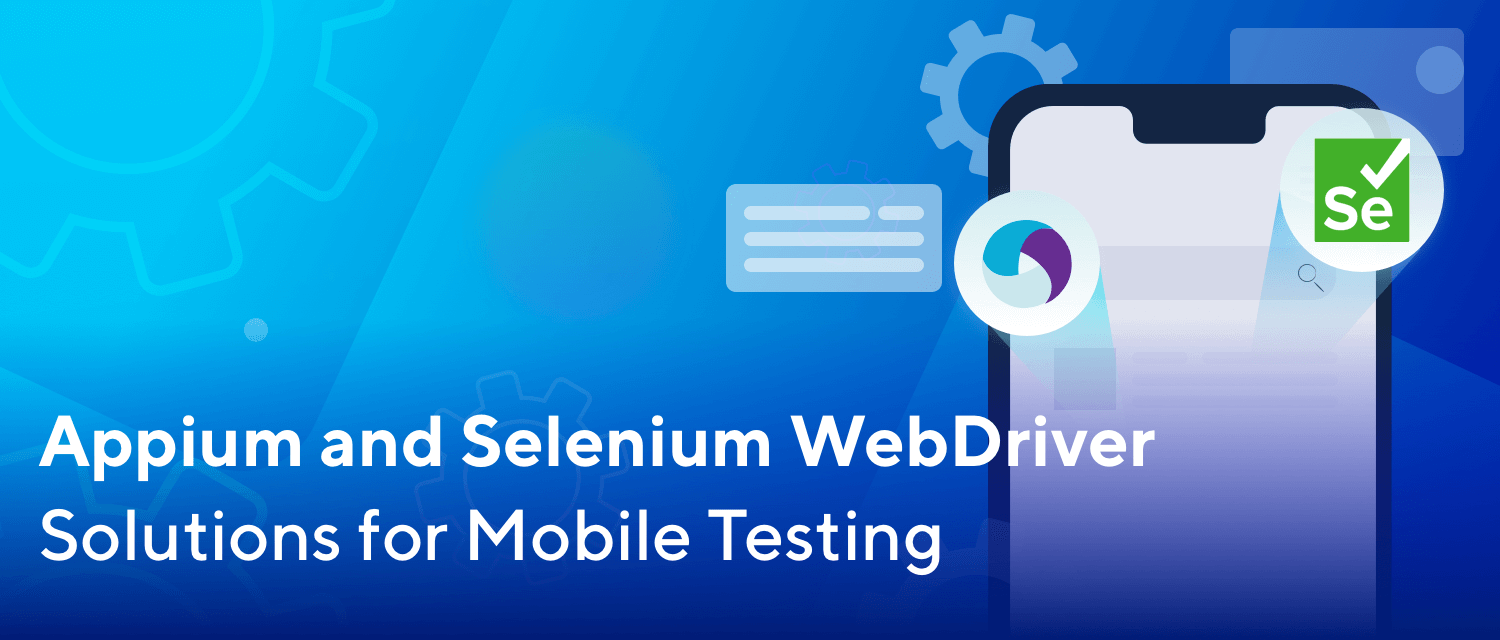
Test automation has come into play and taken the developer’s part to monitor how their mobile apps work across all possible device variants. It provides vital debugging information on which should be fixed before launch. Among a diverse population of automation testing tools, Appium, and its combination with Selenium Webdriver are the top choice on account of their flexibility and scalability.
You’ve perhaps read this statement several times: “Appium is like Selenium — but for mobile apps and games”. Yes, Appium and its various integrations with third-party tools empower testers to write automated test scripts (for iOS, Android, and Windows) even when real devices and real browsers are used in the testing process.
Read more: Appium Tutorial for Mobile Testing
By leveraging both tools in the testing lab, testers now have the best of both worlds. In case the QA team is familiar with Selenium and uses it for web testing, then bringing in Appium to test mobile apps is a logical next step.
The Differences between Appium, Selenium and Katalon Studio — Top-Choices Automation Tool
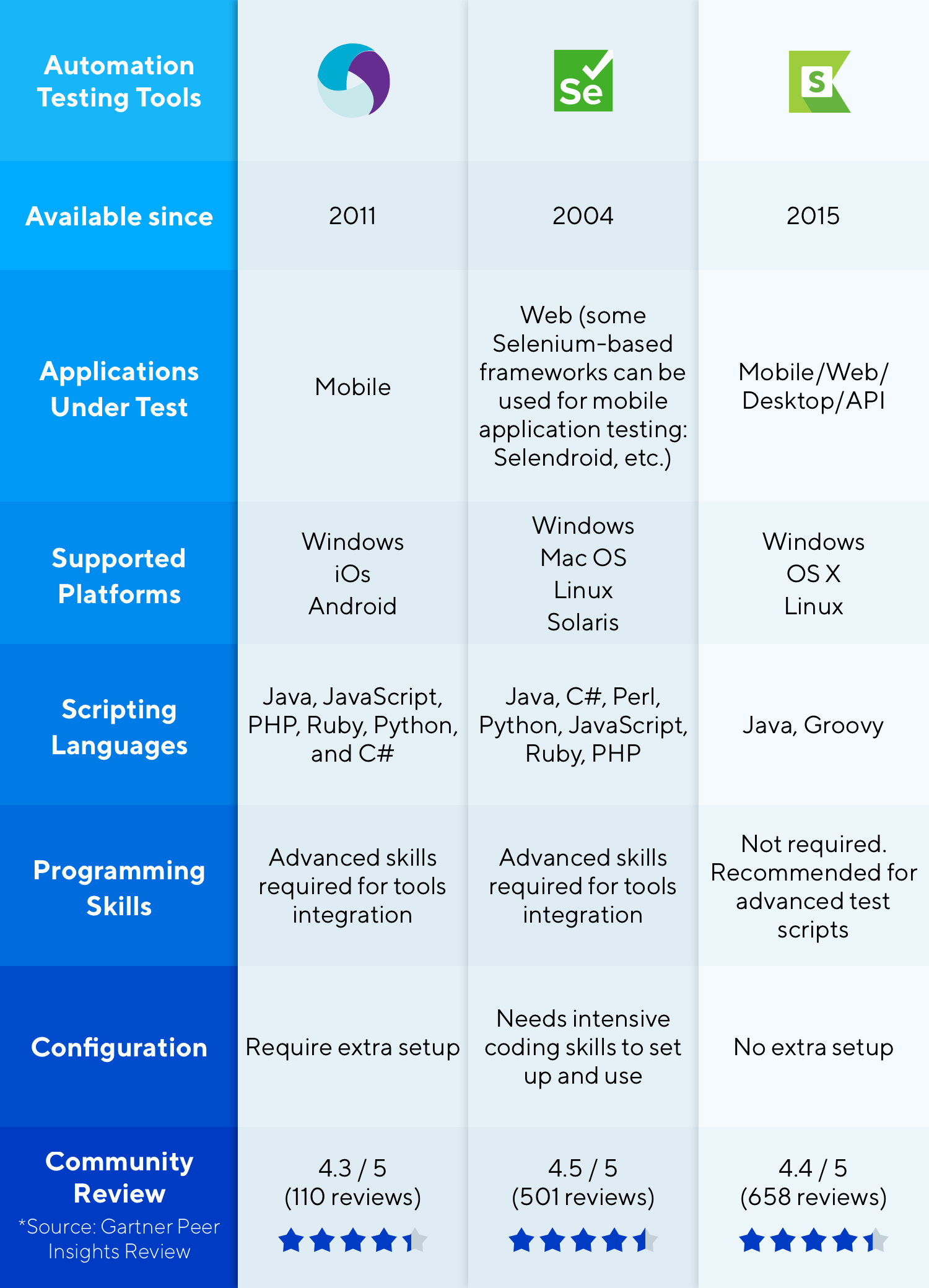
Conclusion
On the whole, the definition of a best-fit mobile testing solution certainly depends on your product and team: testing strategy, member’s expertise, and team’s budget. Your testing tool choice should be software that fits into your team, not software for your team to fit in!
Read more:
{{cta('4326157b-bb00-4e60-b050-e7dd6f75183d','justifycenter')}}




